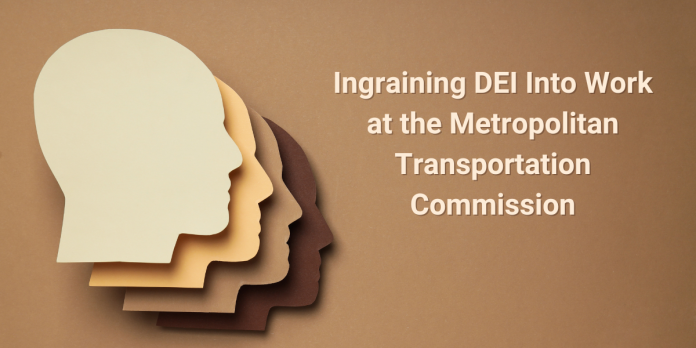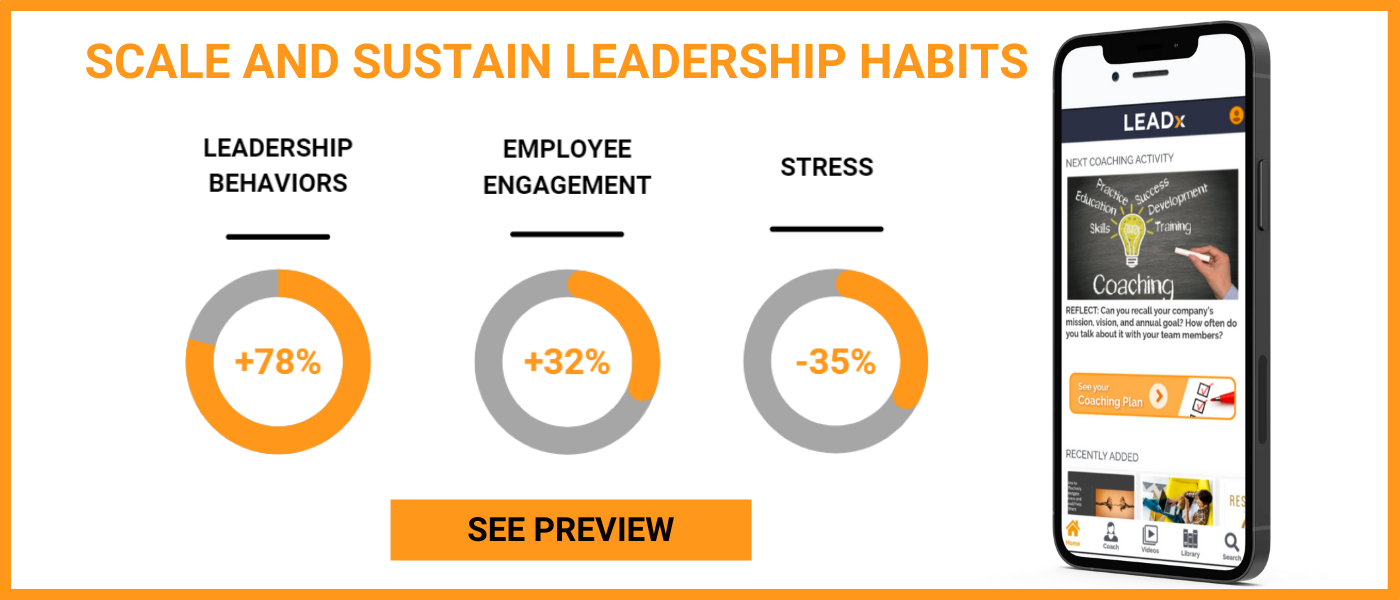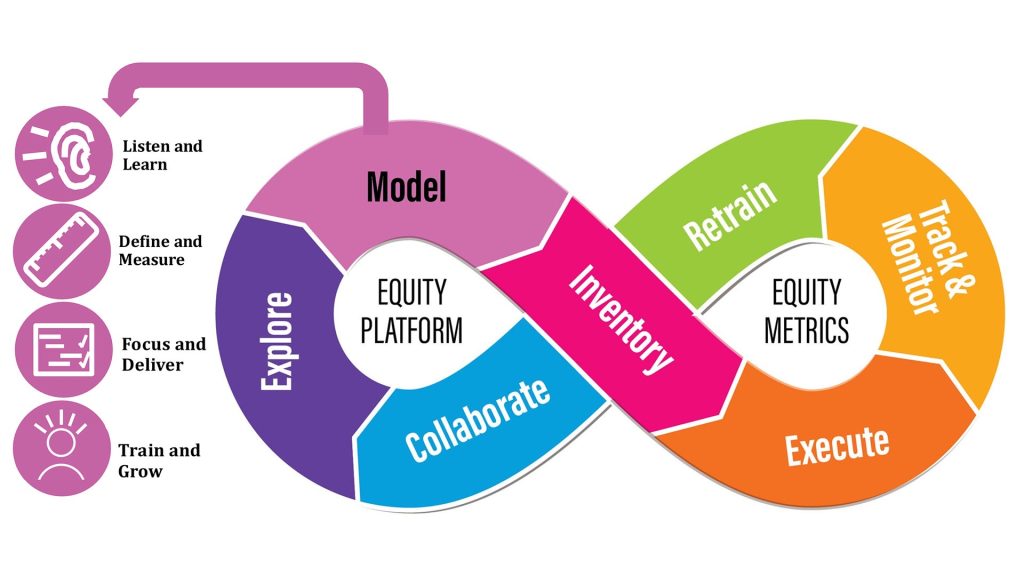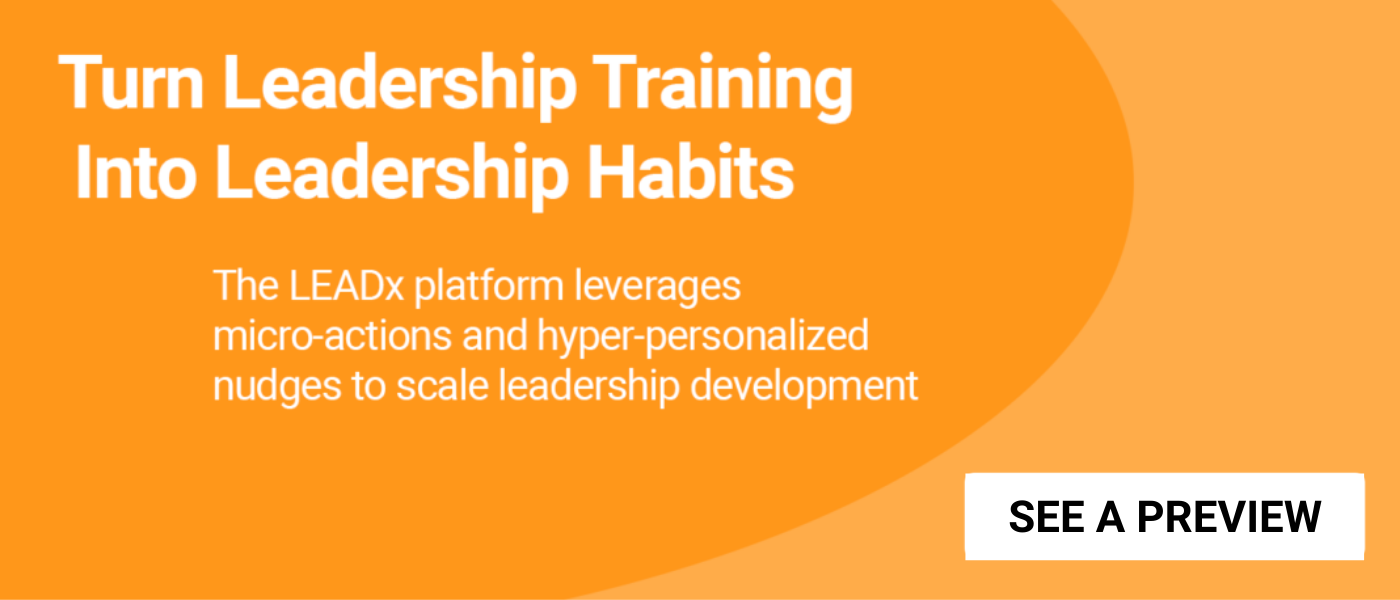
Rather than DEI being a program, make it a lens that you apply to all the work you do. —Alex Prestia, HR Manager at MTC
Many companies offer DEI courses or put employees through DEI training, but what does it take to ingrain DEI into your organization?
 The Metropolitan Transportation Commission (MTC), located in San Francisco, offers a master class on how to embed DEI into the culture, strategy, and work of an organization.
The Metropolitan Transportation Commission (MTC), located in San Francisco, offers a master class on how to embed DEI into the culture, strategy, and work of an organization.
MTC stands at 350 employees and serves all nine counties and 101 cities within the Bay Area. MTC is the Metropolitan Planning Organization for the Bay Area and partners with various agencies to do transportation, housing, land use, environmental sustainability, and equity work for the 7.5 million people that live in the region.
For an in-depth breakdown of MTC’s approach to DEI, I had the opportunity to meet with Alex Prestia, HR Manager of People Programs & Development. As Prestia’s hairless cat Jupiter slunk through his apartment in the background of our Zoom call, we covered:
- How MTC thinks of DEI as a “lens.”
- Their Foundations of DEI Program.
- How they weave DEI into leadership development.

DEI Is a “Lens,” Not Just a Program
Equity has got to keep moving forward, away from being a program under HR or a program under DEI. It has to be a part of your business initiatives, a part of what adds value to your organization. —Alex Prestia, HR Manager at MTC
To move away from a mindset of “DEI Programs” and toward a mindset of “DEI as strategy,” MTC approaches DEI as a lens. Prestia said, “The strategic vision for DEI has been to take our protocol for everything from skills training, competency building, professional development, and leadership development at all levels of our staff, and apply a lens of DEI. We integrate DEI into everything and tie it to our business outcomes.”
The ways the organization applies this lens could be a whole article in and of itself. Here are three core examples:
-
- The Four Pillars of their Equity Platform – Essential to the DEI lens at MTC are their four pillars, which help the agency to establish a common vocabulary around DEI and make it easier to weave DEI into a variety of training programs, processes, and ways of working. The pillars are:
- Define and Measure
- Listen and Learn
- Focus & Deliver
- Train and Grow

-
- The Accessibility, Culture, and Racial Equity (ACRE) Team – The ACRE team helps MTC to catalog where all of their work falls within the four DEI pillars. “The ACRE team,” Prestia explained, “is another huge milestone in our equity work. Therese McMillan, the former Executive Director, created a team devoted to DEI work. They conduct cultural assessments in an ongoing way.” The ACRE team moves through the company to get a sense for things like:
- What equity work have you been able to complete?
- What are you currently working on?
-
- DEI Work with Consultants and Small Businesses – By nature, MTC’s work demands a large portion of work with outside agencies and businesses. Prestia said, “A big win early on with DEI was that we created an equity bench, an inventory of pre-qualified partners, consultants, and groups that are focused on equity work. This made it easier to partner with folks in a way that was furthering opportunities and furthering equity.”
MTC’s ‘Foundations of DEI’ Program Emphasizes On-the-Job Practice
While the key to MTC’s success lies in the fact that it doesn’t rely entirely on one DEI program to push the bar forward, the agency does have a standout program.
Here’s the breakdown:
- Week 1: eLearning – “During the first week,” Prestia said, “participants go through an intensive e-learning to cover key definitions, establish the foundations of equity, and create a common language around DEI.”
- Week 2: Live workshop – After the foundational eLearning, participants move into an interactive, dialogue-driven workshop. The workshop moves into topics like bias, power, privilege, microaggressions, courageous conversations, allyship, stories of difference, and aspects of identity.
- Week 3 and beyond: Practice and coaching – After week two, participants focus on applying what they learned and meet with a seasoned coach. “The coaching system is such a value add,” Prestia said. “Folks who have challenges applying what they learned benefit greatly from that extra external thought partner.”
- A Month later: Listening sessions and custom toolkits – A month after the program, participants engage in a listening session. They give feedback about the program, share how they’re applying what they learned, and discuss the challenges they’re facing. “Employees ask questions like, ‘How do I apologize? How do I accept an apology? How do I call someone out respectfully? How do I deal with an employee who's grieving and dealing with loss?’” Prestia said. “Based on those questions, we put together toolkits to help them work through those challenges on-the-job.”
Weaving DEI into Leadership Development
MTC runs an in-depth, three-year leadership development program. In the first year, participants focus on topics around self-awareness (i.e., personality, leadership style, conflict style, and values). In the second year, they focus on greater awareness (i.e., other awareness, facilitation skills, demonstrating empathy, and learning to be “hands off”), and they mentor the new first-year cohort. In the third year, they focus on organizational awareness and cross-functional leadership (i.e., defining agency needs, establishing third-party partnerships, and establishing cross-functional group goals).
Throughout the three years, MTC incorporates the equity platform into the training, participant projects, and key skills. They also tie their core leadership competencies back to DEI. The competencies include:
- break down silos
- build relationships
- interpersonal skills
- regional thinking
- listening skills
- people management
- change management
- emotional intelligence
- decision-making skills
“DEI is already an essential piece in emotional intelligence and interpersonal skills,” Prestia pointed out. “And we intentionally make the connection between equity and each of the other core competencies.”
Prestia’s Advice for Companies Deepening Their DEI Efforts
After six years at MTC, Prestia has learned a lot over the course of his work in DEI. Here are his top five pieces of advice for anyone looking to embed DEI into their organization:
- Don’t work alone: “If you find yourself trying to come up with solutions on your own, start to reach out to your thought partners, either within your agency or to your network outside.”
- Act in empathy and with an orientation towards convergent dialogue. “Treat yourself as a facilitator of communication, a facilitator of bringing ideas together, even when you know you have the right idea. Patience and peacefulness mean accepting that nothing is wrong. Act in empathy.”
- Work with experts: “Find and partner with people who really care about DEI and are making it their career.”
- Establish guideposts. “Our pillars act as our north star. Don't just start trying to do the work. Establish a set of pillars or guideposts that you can return to.”
- Make DEI ingrained, not supplemental. “The story of our success begins and ends with applying that DEI lens to everything we do.”






